As part of its continued efforts to promote sustainable livelihoods and strengthen community-based conservation, the Royal Society for Protection of Nature (RSPN), in collaboration with the College of Natural Resources (CNR), conducted a week-long Training on Rural Entrepreneurship from July 9th to 15th, 2025 at CNR, Punakha District.
The training was designed to build the capacity of local officials to foster rural-based entrepreneurship in sectors such as beekeeping, fisheries, ecotourism, and high-value vegetable and crop cultivation. These efforts are aligned with RSPN’s broader goal of reinforcing the conservation of the critically endangered White-bellied Heron (WBH) through inclusive community engagement and sustainable economic development.
A total of 28 participants from the WBH landscape, including Dzongkhag Agriculture and Livestock Officers, Economic Development and Marketing Officers, Gups, and Gewog Administrative Officers, took part in the training. Their diverse expertise and local knowledge contributed to enriching the dialogue and ensuring the contextual relevance of the training. The key objectives and highlights of the training are:
As a result,participants gained a deeper understanding of rural entrepreneurship and developed practical skills necessary to initiate and sustain small-scale enterprises aligned with both community needs and conservation goals.This initiative marks an important step in promoting people-centered conservation, where local livelihoods and biodiversity protection go hand-in-hand.Through the empowerment of local changemakers, RSPN endeavors to position rural communities as key actors in environmental stewardship and contributors to Bhutan’s sustainable economic development.
“This training is more than just about business it’s about building resilient rural communities that take pride in conserving their natural heritage,” shared one of the participants.
This activity is part of the IKI Project, “Developing Ecosystem-based Solutions for Managing Biodiversity Landscapes in Bhutan,” funded by the BMUV and co-funded by the MAVA Foundation and RSPN.
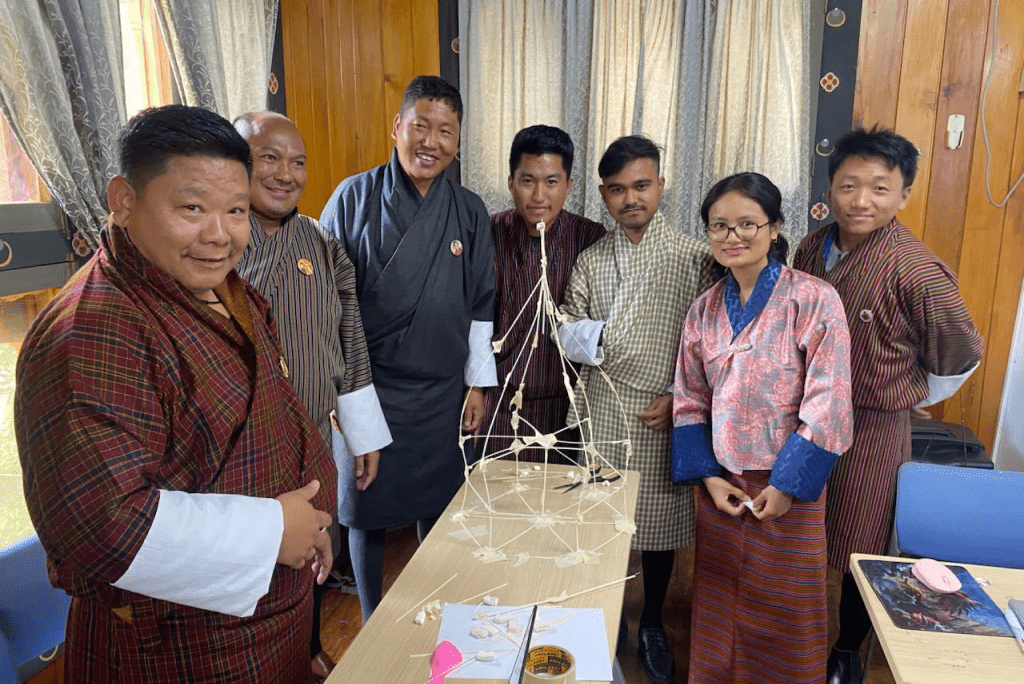
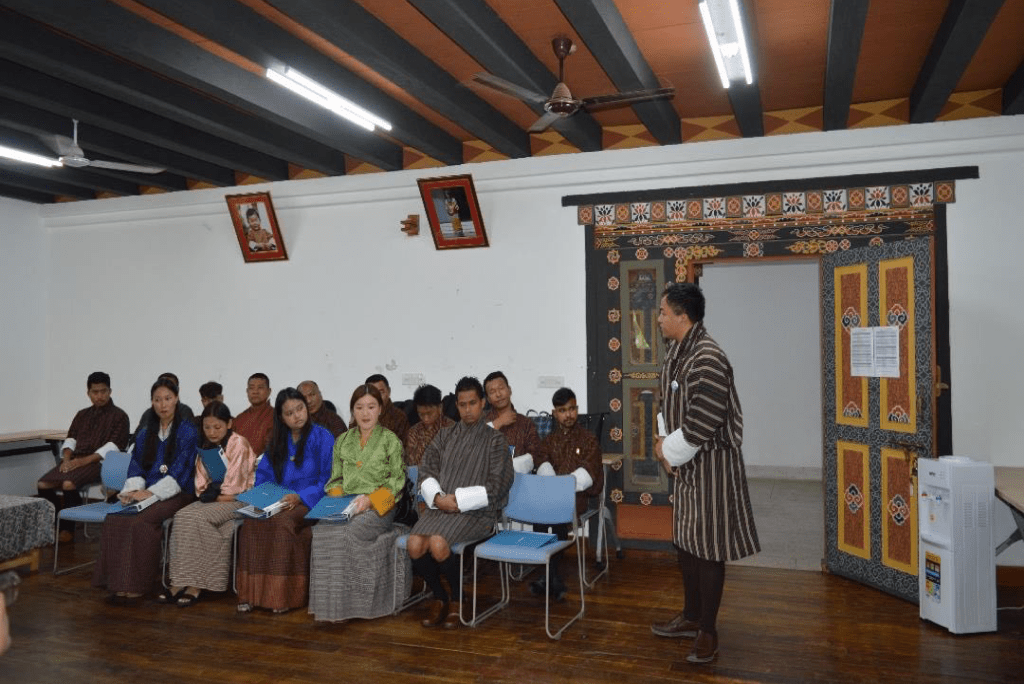
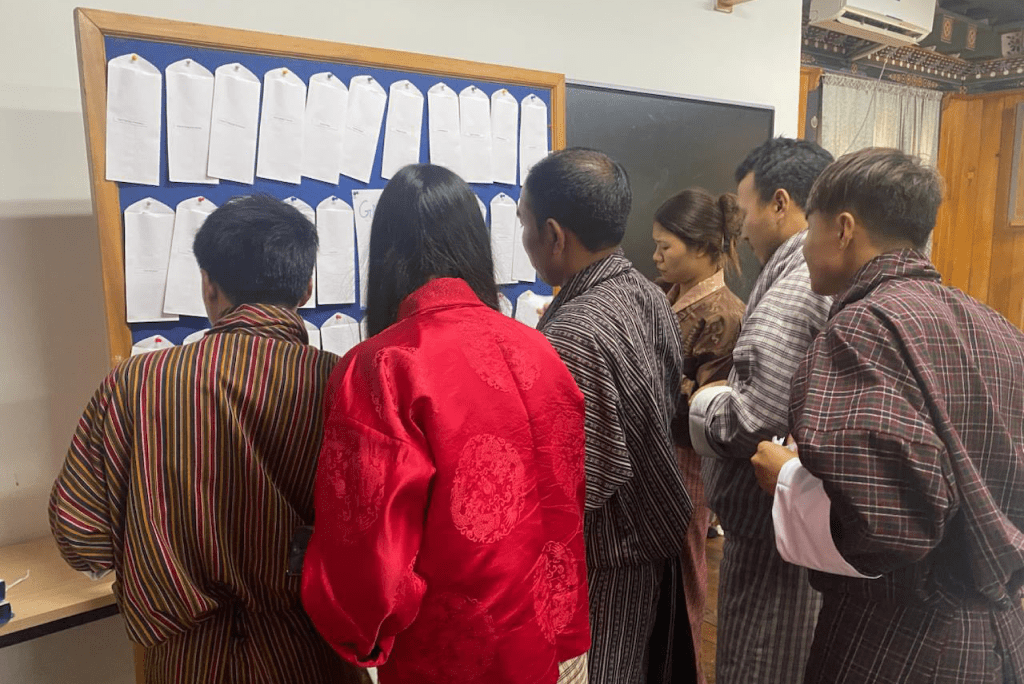
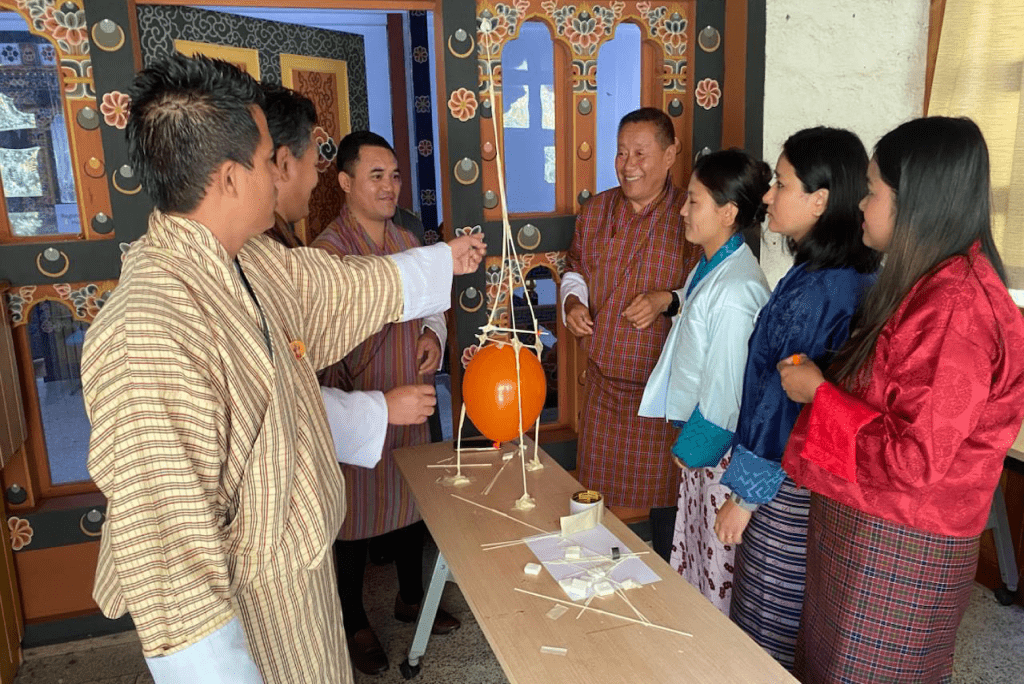
On the auspicious occasion of Her Majesty The Gyaltsuen Jetsun Pema Wangchuck’s Birth Anniversary, our beloved Royal Patron,RSPN Bhutan with the students and teachers of Changangkha Middle Secondary School, developed and adopted an area into a “Garden of Peaceful Learning”.
Designed as a vibrant outdoor learning space, the garden ![]() features a diverse selection of climate-resilient improved fruit saplings-a living gift that honors Her Majesty’s steadfast commitment to protecting Bhutan’s natural legacy.
features a diverse selection of climate-resilient improved fruit saplings-a living gift that honors Her Majesty’s steadfast commitment to protecting Bhutan’s natural legacy.
Each tree stands as a quiet promise to protect, to nurture, and to carry forward Her Majesty’s vision of promoting education, nature conservation, and a compassionate society.
May this garden flourish as a sanctuary of knowledge, reflection, and reverence for generations to come.

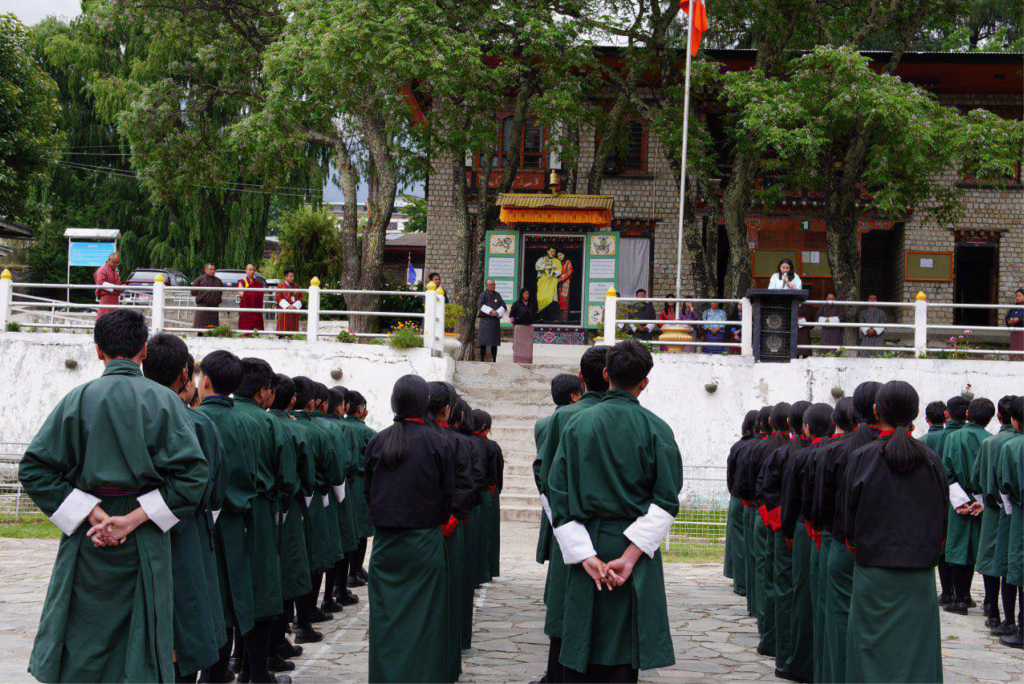
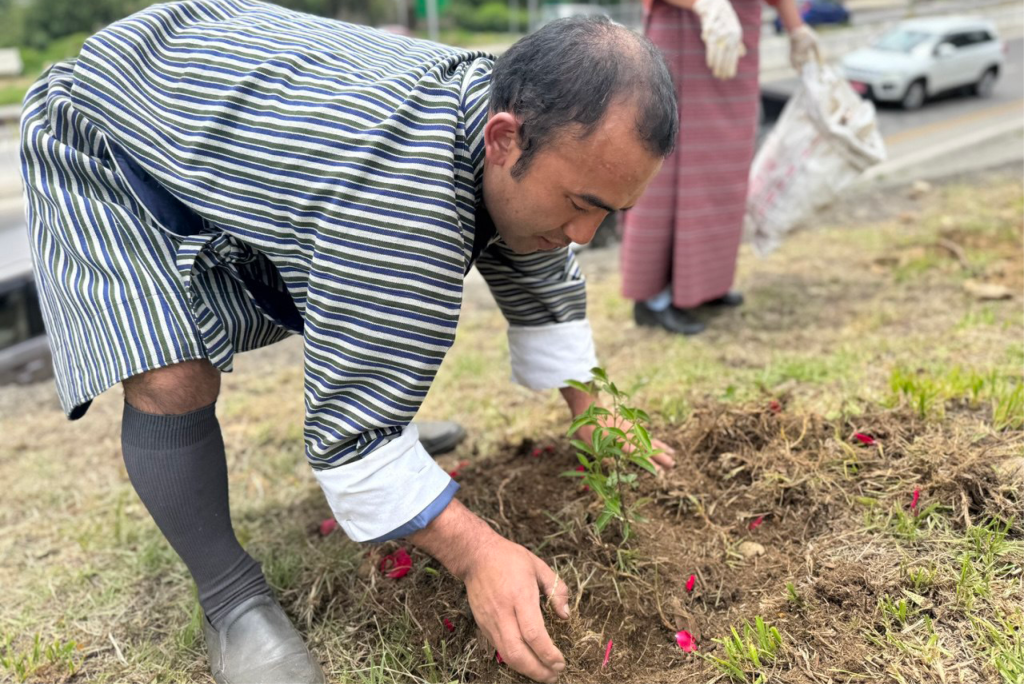
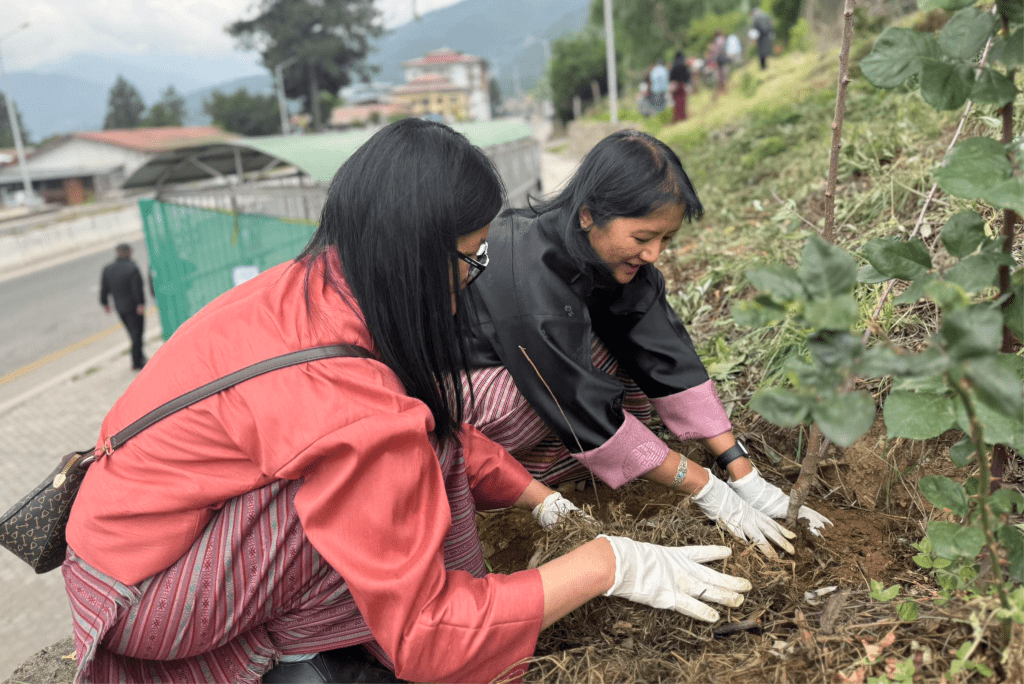
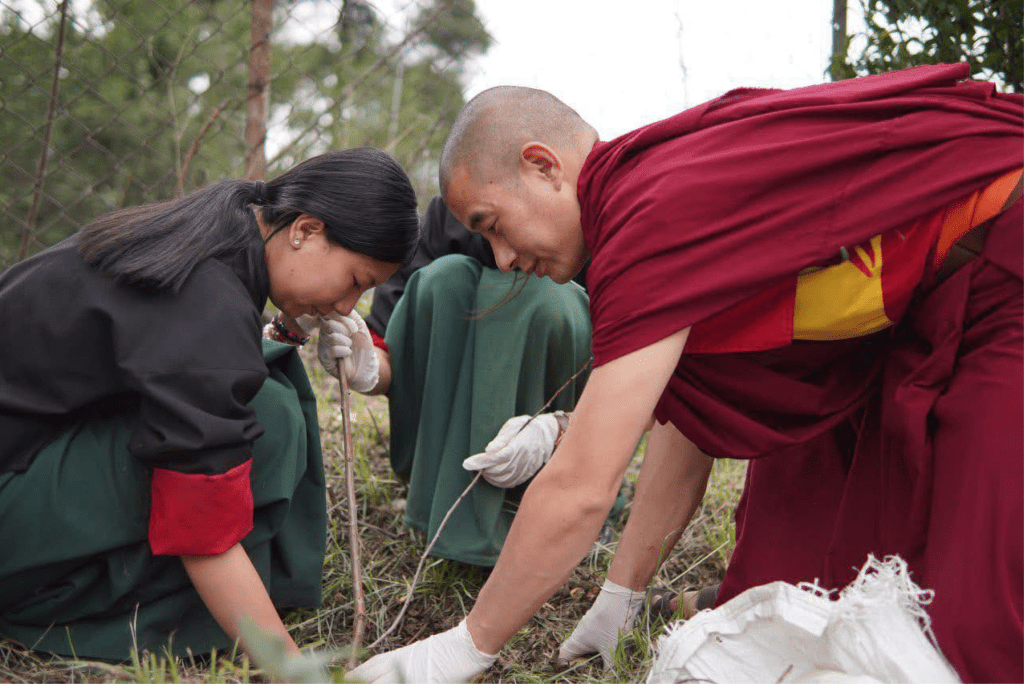
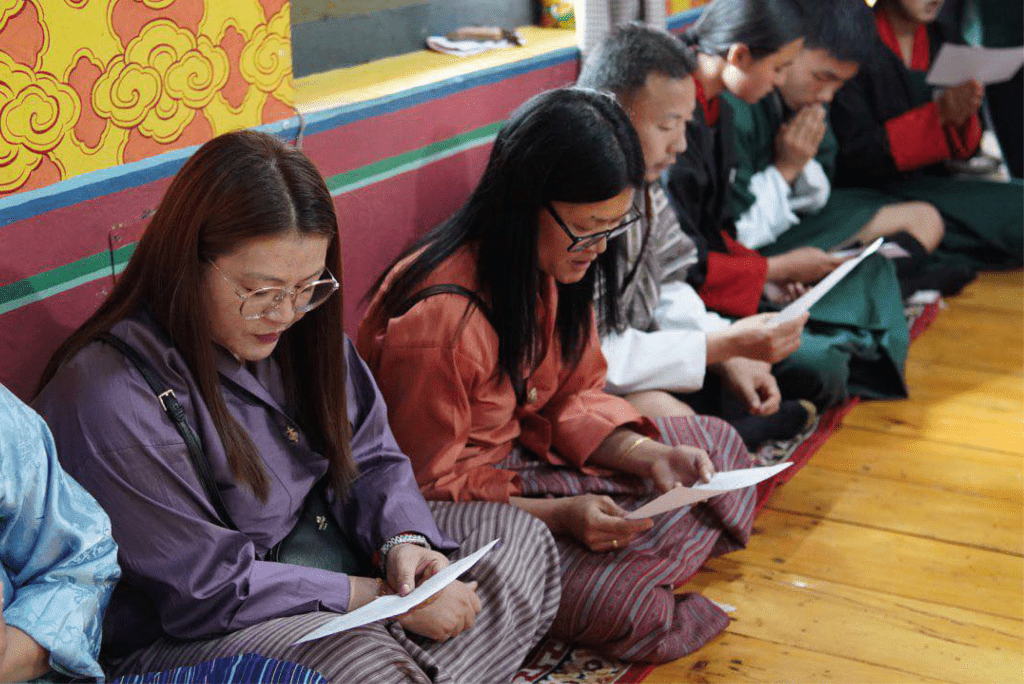
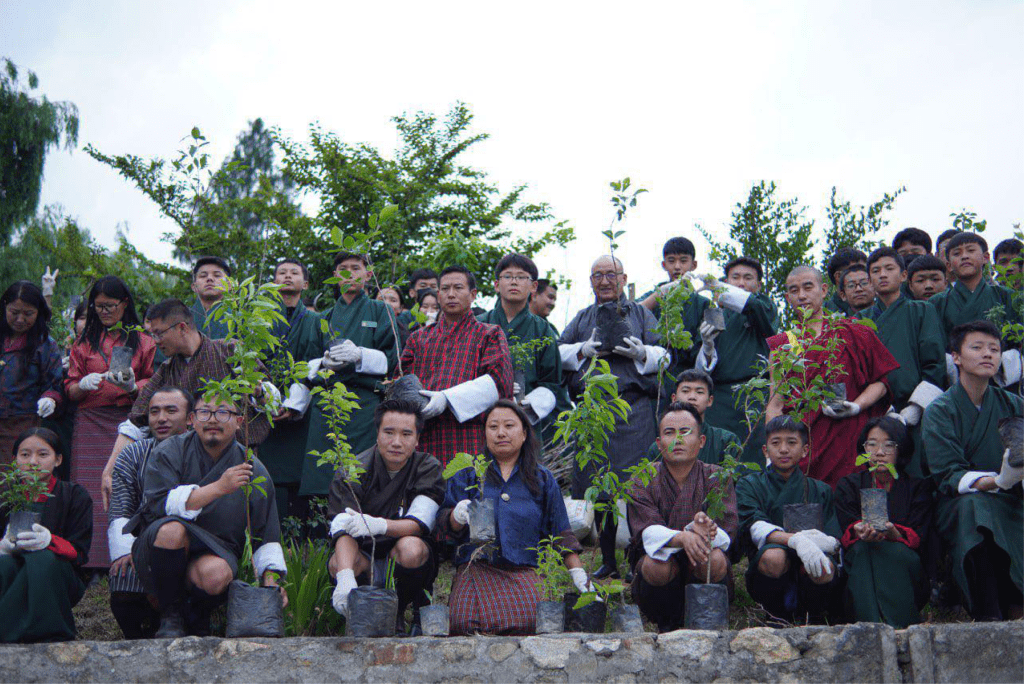
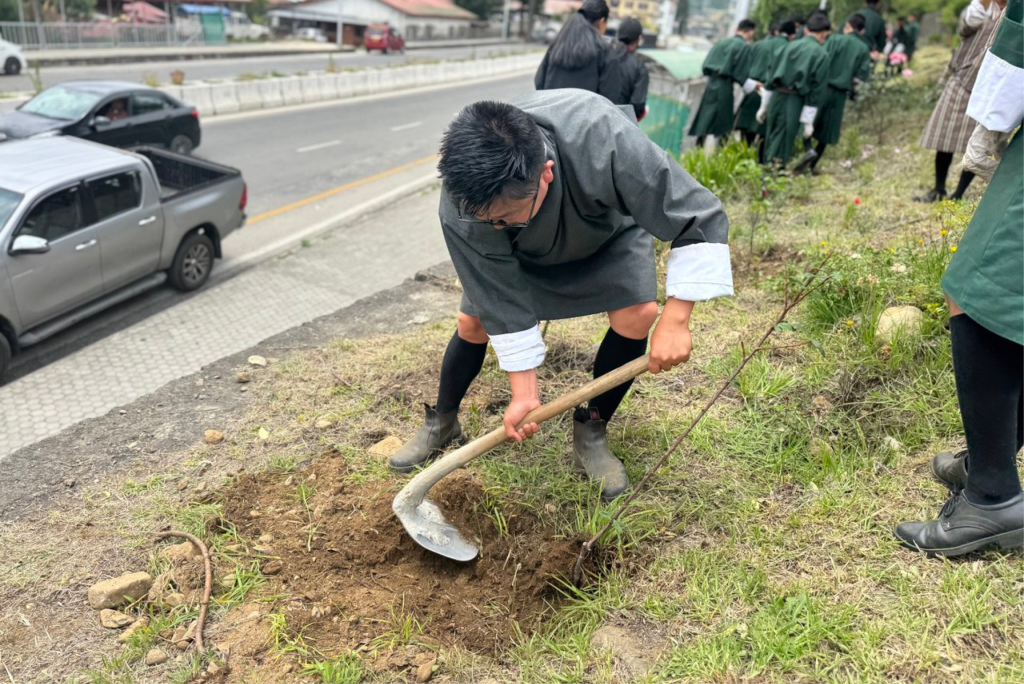
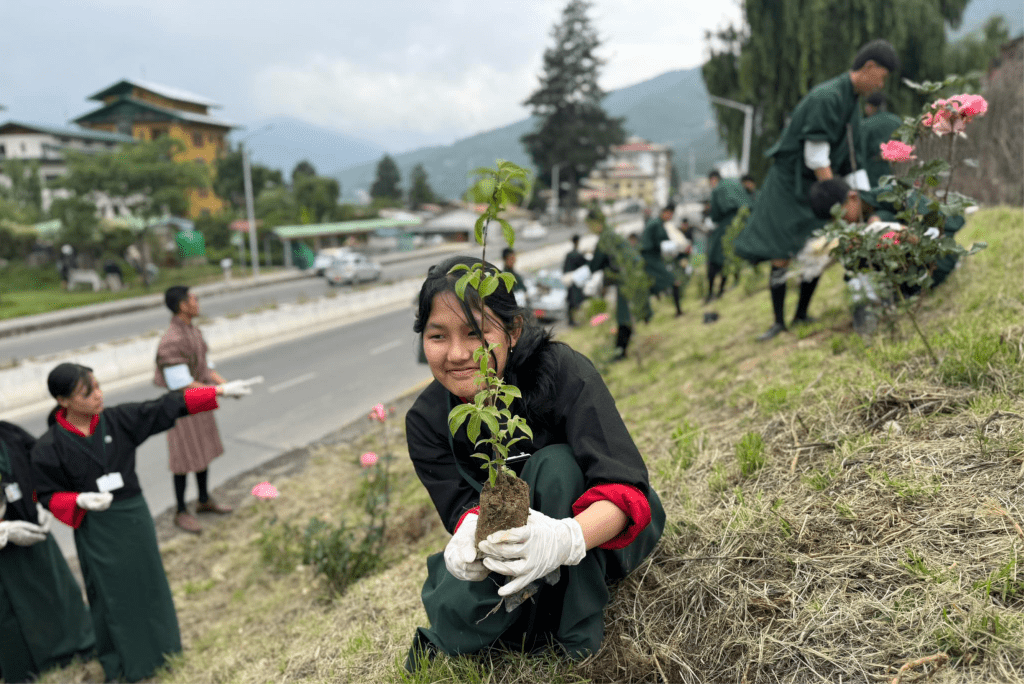
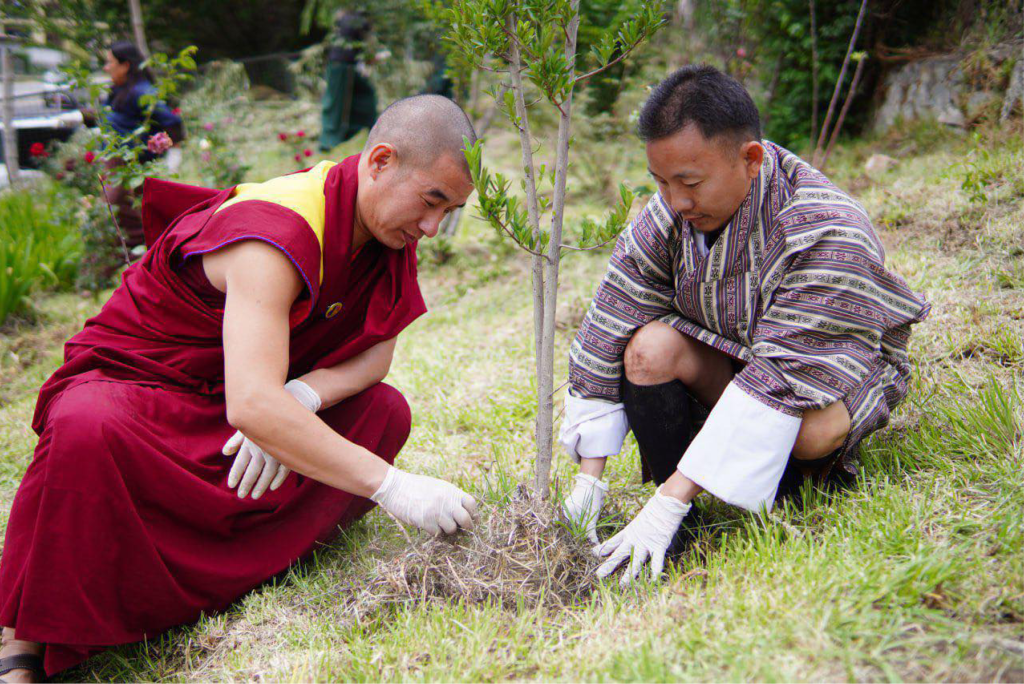
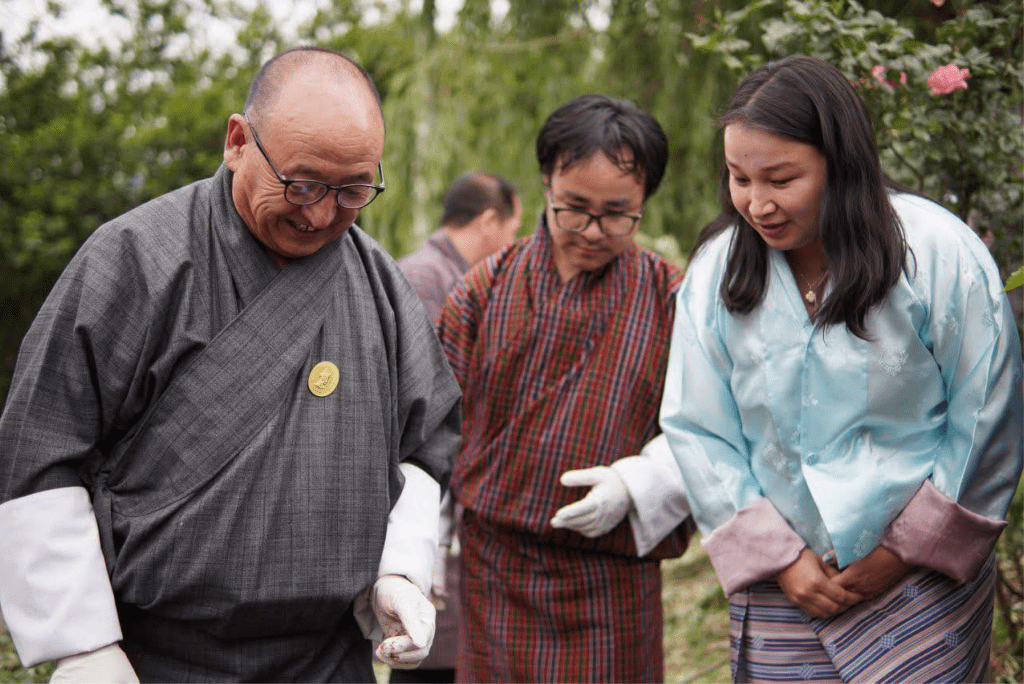
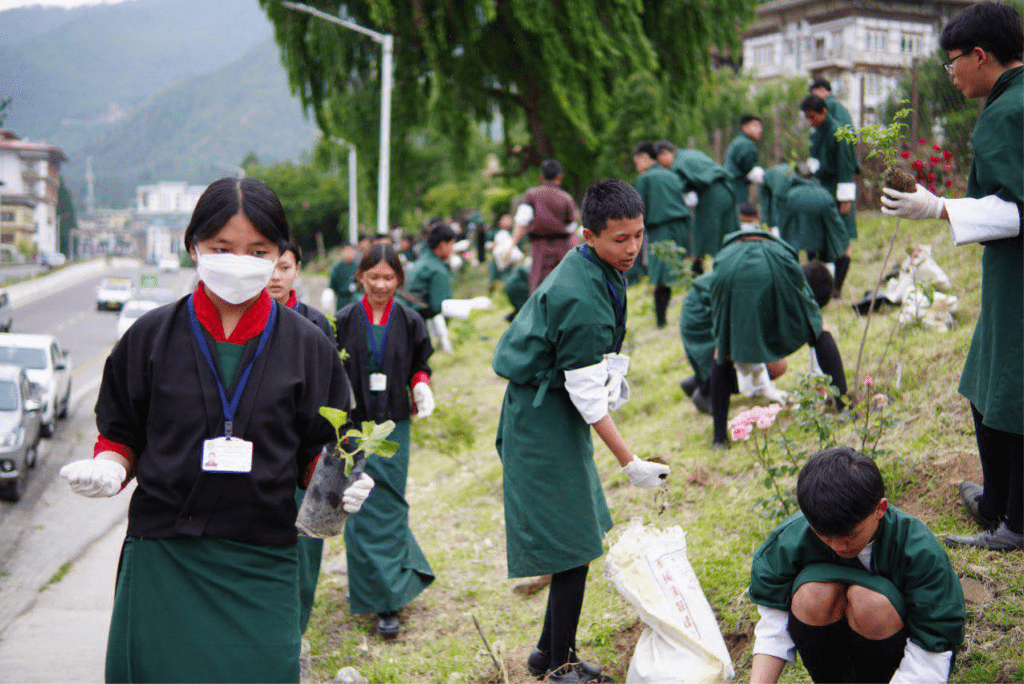
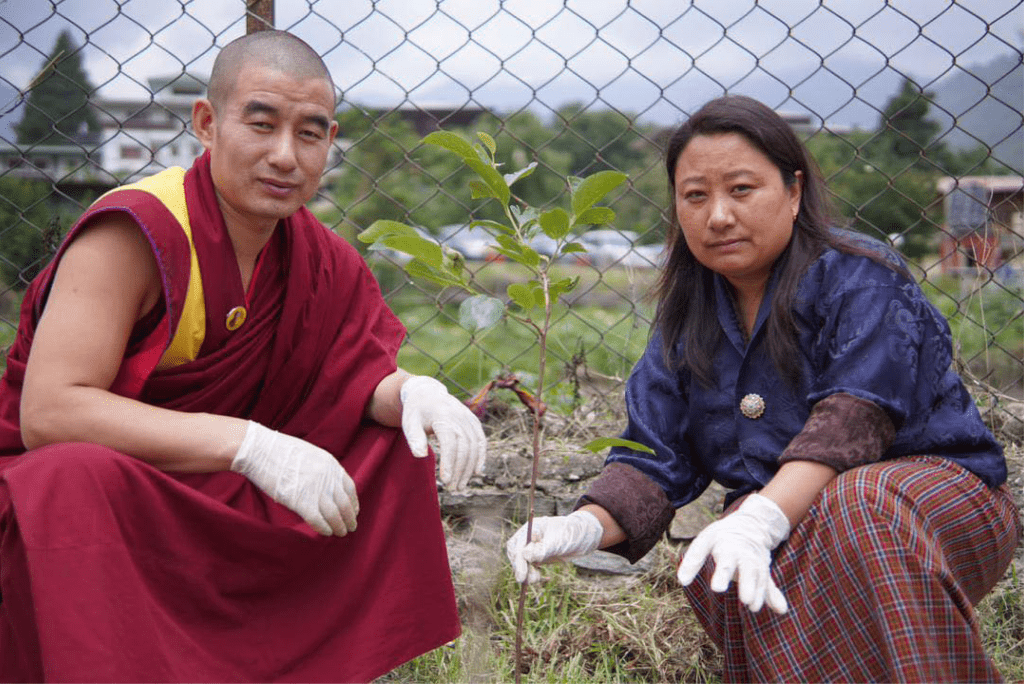
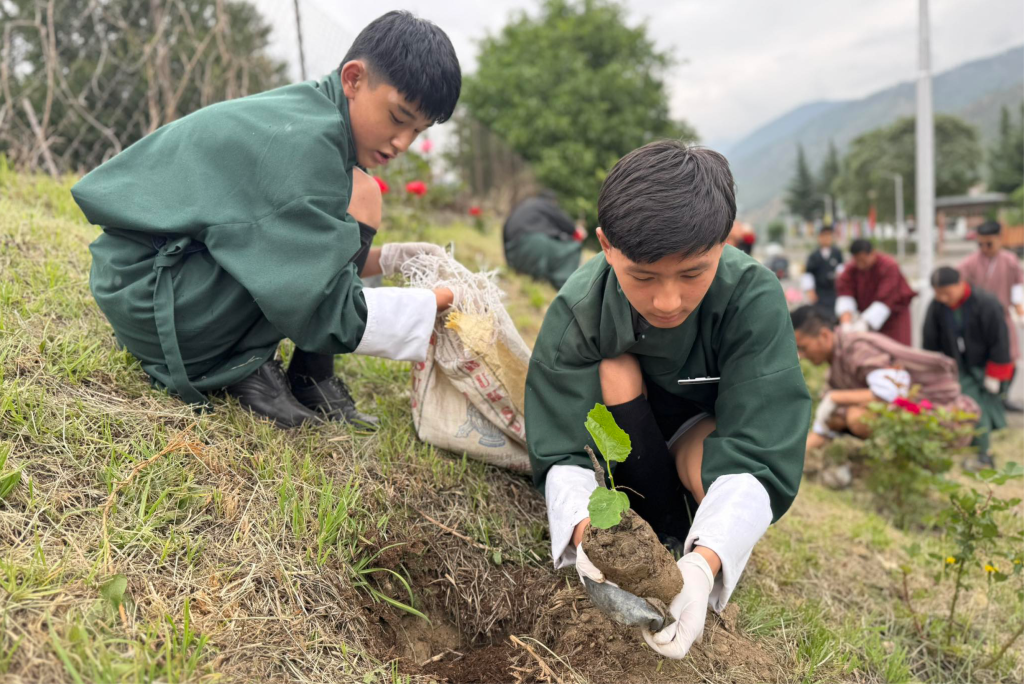
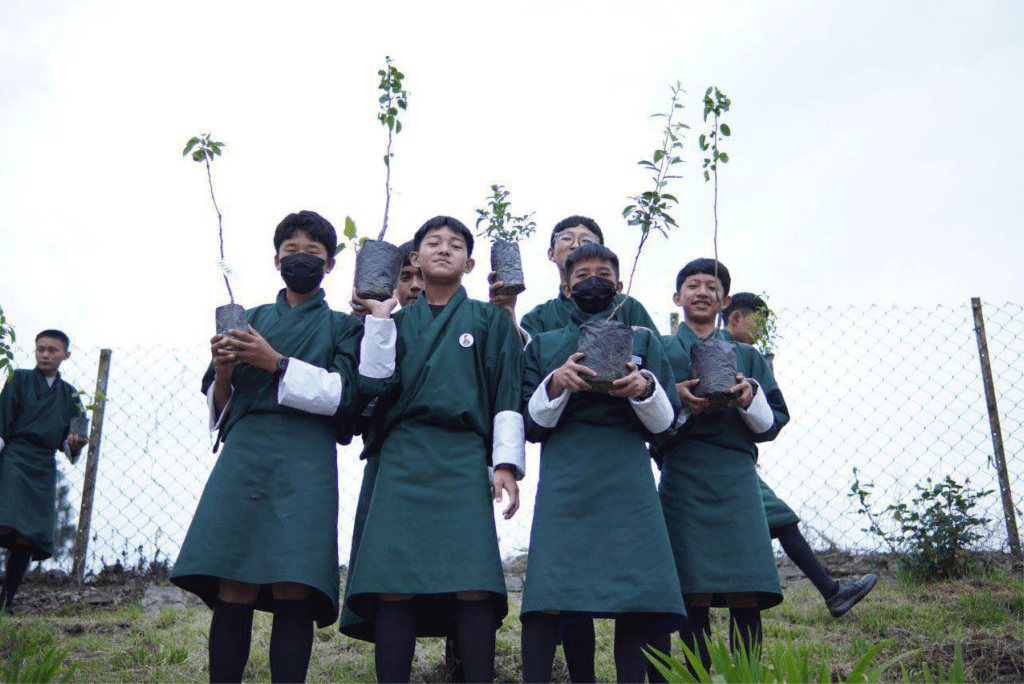
On the auspicious occasion of the Birth Anniversary of His Majesty the Third Druk Gyalpo, the Royal Society for Protection of Nature (RSPN Bhutan) is honored to launch the Annual White-bellied Heron Population Survey Report 2025.
Since 2003, RSPN, in collaboration with the Department of Forests and Park Services, has conducted annual surveys to monitor the status of this critically endangered species. These long-term efforts have been significant in understanding population trends, distribution patterns, prevailing threats, and guiding targeted conservation interventions.
This year’s survey recorded a total of 𝟮𝟵 𝗶𝗻𝗱𝗶𝘃𝗶𝗱𝘂𝗮𝗹 𝗪𝗵𝗶𝘁𝗲-𝗯𝗲𝗹𝗹𝗶𝗲𝗱 𝗛𝗲𝗿𝗼𝗻𝘀; 𝟮𝟰 𝗶𝗻 𝘁𝗵𝗲 𝘄𝗶𝗹𝗱 𝗮𝗻𝗱 𝗳𝗶𝘃𝗲 𝗮𝘁 𝘁𝗵𝗲 𝗪𝗵𝗶𝘁𝗲-𝗯𝗲𝗹𝗹𝗶𝗲𝗱 𝗛𝗲𝗿𝗼𝗻 𝗖𝗼𝗻𝘀𝗲𝗿𝘃𝗮𝘁𝗶𝗼𝗻 𝗖𝗲𝗻𝘁𝗲𝗿 (𝗪𝗕𝗛𝗖𝗖). The survey also identified four active nests; three in the Punatshangchhu river basin and one in the Mangdechhu river basin.
RSPN expresses its heartfelt gratitude to all donors, conservation partners, philanthropists, and stakeholders whose continued support makes this annual survey possible.
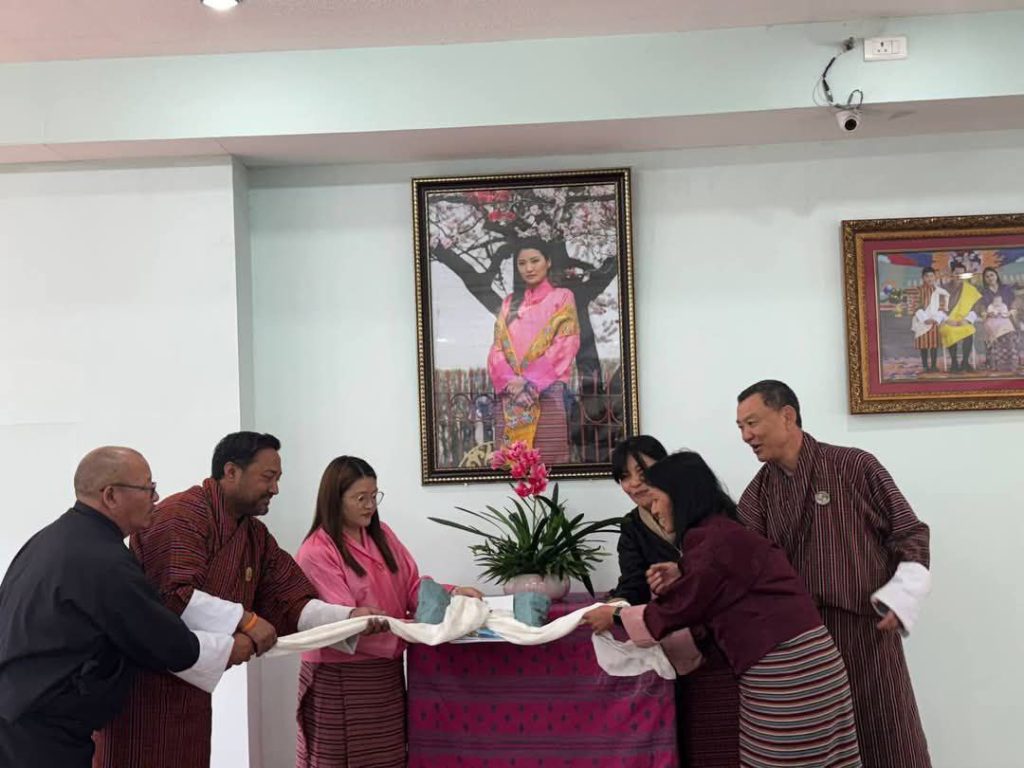
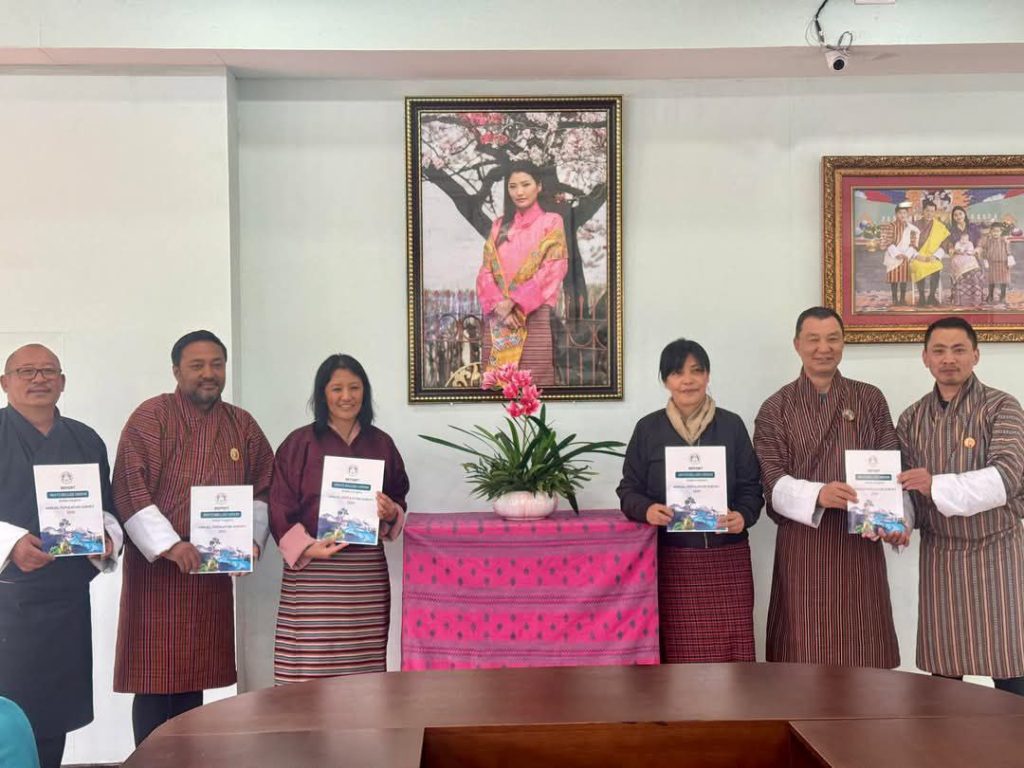
With the signing of a Memorandum of Understanding (MoU) earlier today, RSPN Bhutan and College of Natural Resources, Royal University of Bhutan have formally established their partnership, marking a significant step forward in environmental research and education.
This #MoU aims to foster cooperation between the two organizations in key areas such as scientific research, capacity building, and educational development. Through this partnership, both organizations will be able to leverage their respective strengths, leading to mutual benefits and the establishment of a comprehensive framework for future collaborations.
The MoU outlines several exciting initiatives, including:
![]() Joint research initiatives
Joint research initiatives
![]() Collaborative research projects
Collaborative research projects
![]() Support for graduate and research degree students
Support for graduate and research degree students
![]() Organization of seminars, conferences, and workshops
Organization of seminars, conferences, and workshops
![]() Capacity-building efforts
Capacity-building efforts
![]() Collaborative publications
Collaborative publications
With this partnership, RSPN and CNR are ready to take bold steps in shaping the future of conservation and sustainable development.
Stay tuned for more updates on this exciting collaborations.

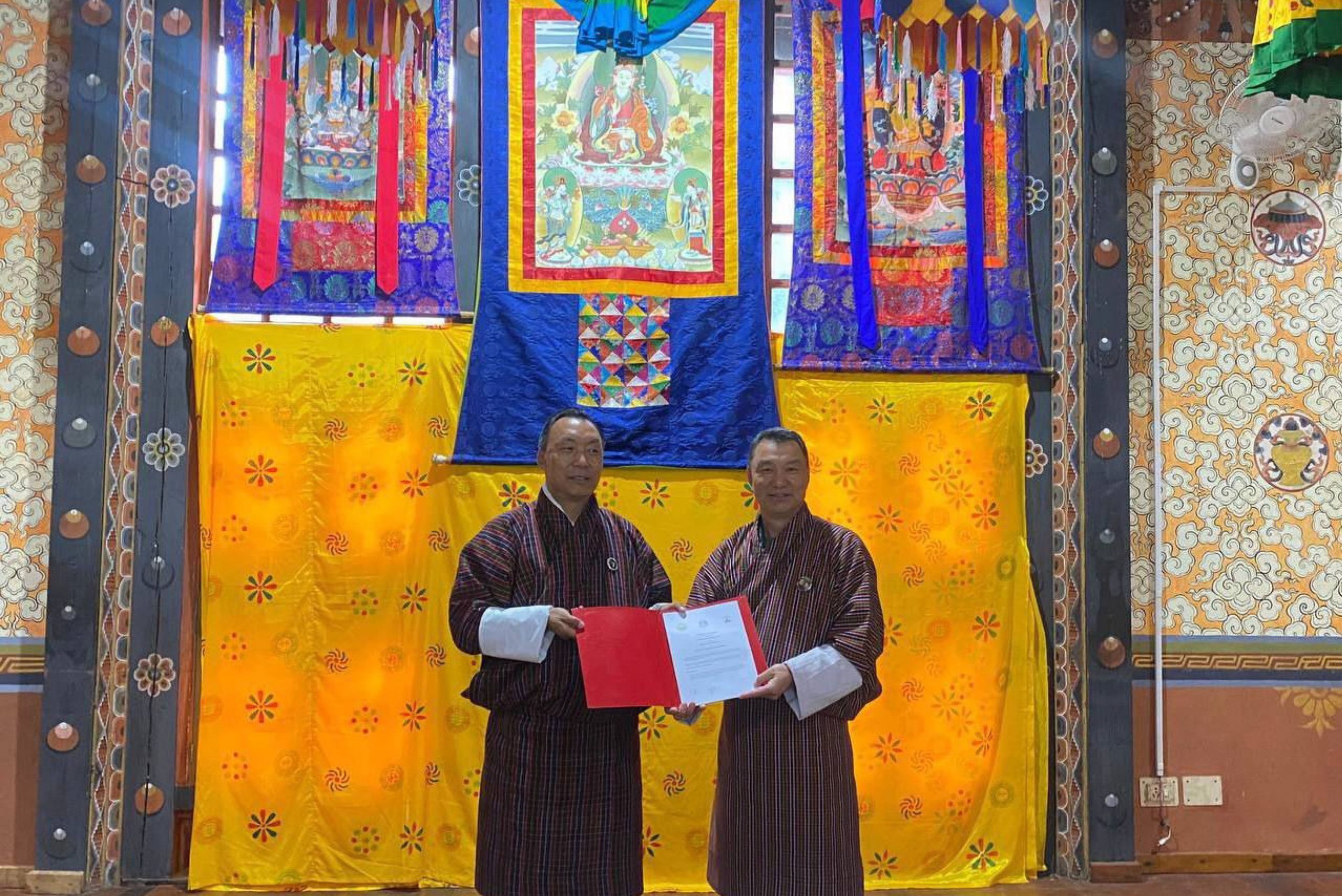
𝗖𝗿𝗮𝗻𝗲 𝗔𝗻𝗻𝗲𝗴𝘂𝗻𝘁𝗲𝗿𝗮 after spending nearly seven months in the wetlands of the Tibetan Autonomous Region, China, returned to Phobjikha Valley on November 26, 2024, covering an impressive 𝟭𝟴𝟬 𝗸𝗶𝗹𝗼𝗺𝗲𝘁𝗲𝗿𝘀 𝗶𝗻 𝗷𝘂𝘀𝘁 𝟰 𝗵𝗼𝘂𝗿𝘀.
Anneguntera was first tagged with a GPRS/GSM transmitter in the winter of 2019 at Phobjikha by researchers from NABU, Crane Conservation Germany, and RSPN.
This year, Phobjikha has recorded about 380 Black-necked Cranes so far. Their arrival in Phobjikha, often synchronized with the onset of winter, heralds a season of celebration and conservation efforts, as the valley becomes a sanctuary for these globally threatened species. The valley transforms into a sanctuary for these globally threatened species, serving as one of their critical habitats. This migration is more than a natural spectacle-it’s a testament to the Black-necked Crane’s resilience and underscores the importance of preserving their habitats for the generations to come.
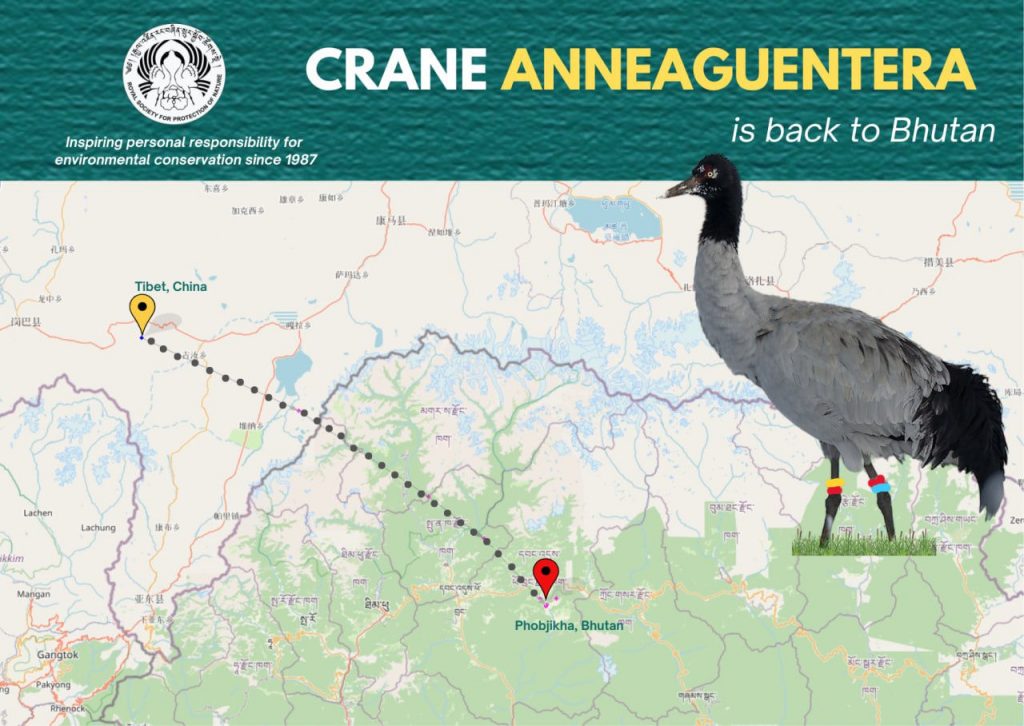
RSPN Bhutan and the Bhutan Trust Fund for Environmental Conservation (BTFEC) signed a Grant Agreement to support RSPN’s accreditation as the country’s second National Implementing Entity (NIE) of Adaptation Fund today. For RSPN’s accreditation, the Adaptation Fund (AF) has approved a Readiness Package Grant of US$ 150,000 and currently implements the Readiness Project-BTN-RS-006. This grant support will help RSPN in developing and updating policies, conducting stakeholders consultations, and addressing any accreditation comments from the AF. RSPN consider this collaboration with BTFEC and the Adaptation Fund as a pivotal milestone in its journey towards accreditation and enhancing country’s resilience to #ClimateChange.


Today, RSPN Bhutan hosted a delegation from France to discuss advancing Red Panda conservation in Bhutan. This visit follows previous high-level delegations received by RSPN.
During the joint meeting, RSPN presented the past and ongoing conservation works RSPN is implementing, and discussed on various mutual areas RSPN can work together with different organizations, including international partners.
To take forward the conservation of Red Panda, RSPN and Connaître et Protéger le Panda Roux (CPPR) will initiate further discussion.

RSPN Bhutan had a privilege to host a meeting with the officials from Green Climate Fund (GCF) secretariat. The team led by the Executive Director, Ms. Mafalda Duarte of GCF is currently on official visit to Bhutan.
During the meeting, RSPN shared its conservation strategies in saving globally threatened species through community-focused initiatives and building climate resilient societies. RSPN became Delivery Partner to GCF in 2023 for implementing the Readiness Project in Bhutan and currently implements the Readiness Project BTN-RS-006. The update was also made on the progress of project. The meeting also highlighted some of the areas to strengthen partnership between GCF and RSPN. RSPN aspires to become second accredited entities to GCF from Bhutan and the current Readiness Project have outlined scopes in preparation of RSPN for accreditation process.
RSPN, under the Royal Patronage of Her Majesty the Queen of Bhutan and in partnership with government, international partners, foundations and communities is dedicated to preserving Bhutan’s environment. This meeting marks a significant step in strengthening our partnership with the GCF as we work together towards a greener and sustainable future for Bhutan.

White- bellied Heron is classified as a critically Endangered species because it has an extremely small and rapidly declining population. This decline is projected to increase in the near future as a result of loss and degradation of lowland forest and wetlands, and through direct exploitation and disturbance. In an effort to raise awareness and promote conservation efforts among the forest officials and community, RSPN staff of White-bellied Heron Conservation team organized an advocacy program to forest Officials and the Kilkhorthang community on 17th October 2024. RSPN and Forest officials have a long-standing collaboration in promoting the conservation of the White-bellied Heron, and this program was another step in their joint efforts.
The program began with a presentation on RSPN role and programs and the White-bellied Heron ecology, the benefits of conserving WBH (ecological, socioeconomic),and means to mitigate the threats to WBH. Later the participants were introduced to captive breeding facilities of WBH and provided guided tours to information unit learning about Heron biology, behavior, ecology and threats.
The advocacy program successfully brought together forest officials and community members to discuss the conservation work of the White- bellied Heron. The program fostered collaborative support and laid the groundwork for future initiatives to protect the species and its habitat. Sustained efforts and active participation from all stakeholders will be essential to ensure the long-term survival of the White- bellied Heron. There were a total of 18 participants with 3 female and 15 number of male participants.
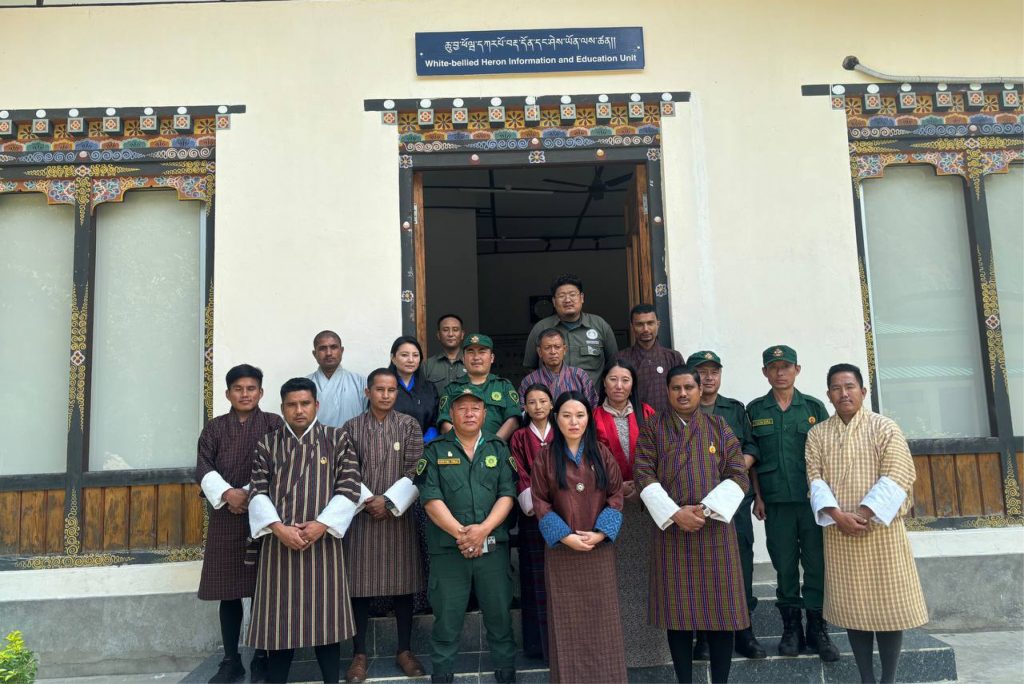
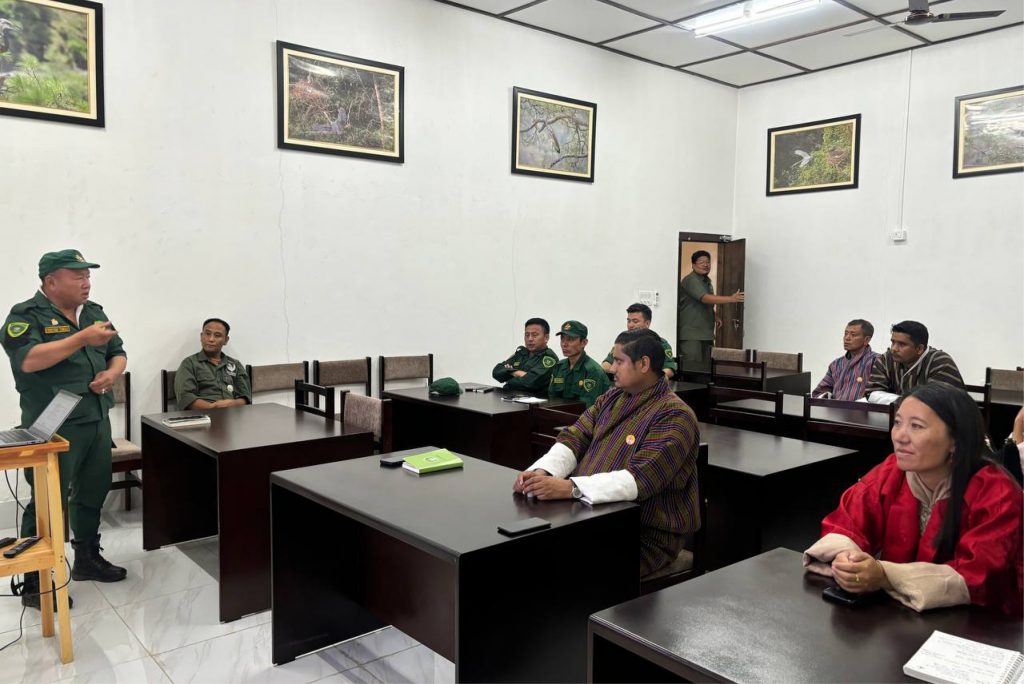
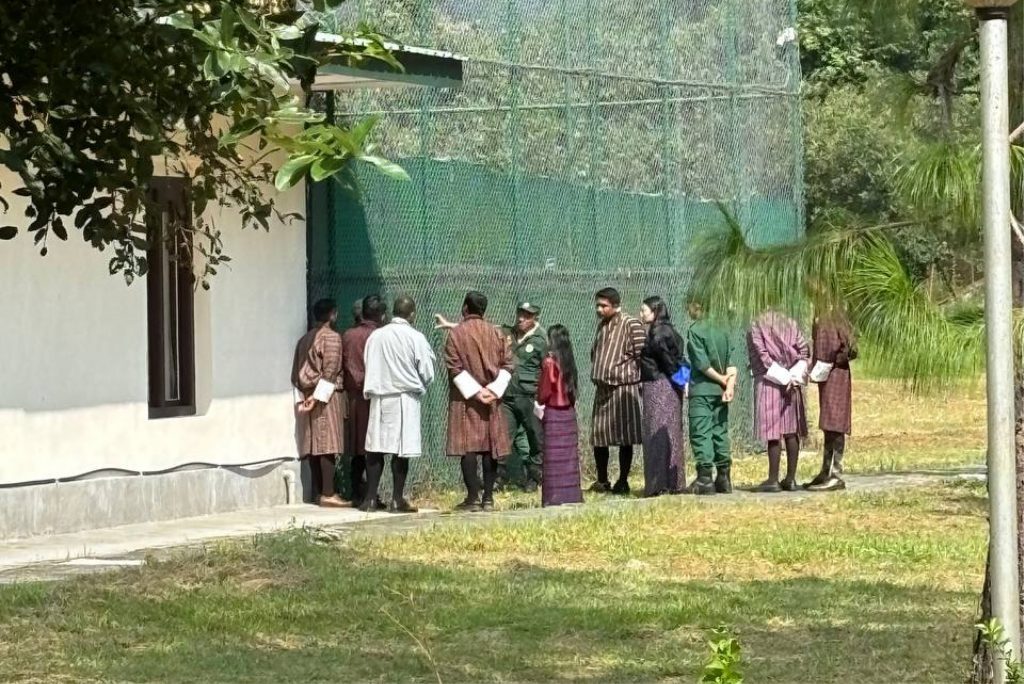
As the harvest season approach, Ap Dorji Rinchen, a resident of Toedwang gewog in Punakha, can finally rest without sacrificing his sleep to guard his six acres of wetland from wild boars and other animals. Earlier,the community had built 11 temporary sheds around the fields for protection,with each household taking turns to monitor the crops overnight.
Now with the introduction and support of electric fencing by the RSPN, the situation has improved significantly. This intervention, which covers six villages has benefited 42 households and protects around 90 acres of farmland. The 17-kilometre stretch of fencing with a total budget of Nu 2.5 million was inaugurated on September 30th,2024.
Prior to the project’s implementation, the local residents were felling trees from the nearby banks of the Phochhu River to use as fencing poles. The resident shared that led to the habitat disturbance of local wildlife including the critically endangered White-bellied Heron (WBH) and highlighted the need for sustainable solutions to protect both the environment and the community’s livelihoods.
Currently, the High-Density Poly-ethylene (HDPE) pipes are used for the electric fence. The HDPE poles not only reduce the impact on local forests but also enhance the durability and effectiveness of the fencing system.
Last year, the WBH juvenile was spotted in Samdingkha area which shows that with the restoration and habitat improvement intervention, the WBH comes back to its natural habitat.
This activity is a part of IKI Project “Developing Ecosystem-based Solutions for Managing Biodiversity landscapes in Bhutan” funded by the Federal Ministry for the Environment, Nature Conservation, Nuclear Safety and Consumer Protection (BMUV), Germany through International Climate Initiative (IKI) with co-funding from MAVA Foundation, Switzerland and the Royal Society for Protection of Nature (RSPN).
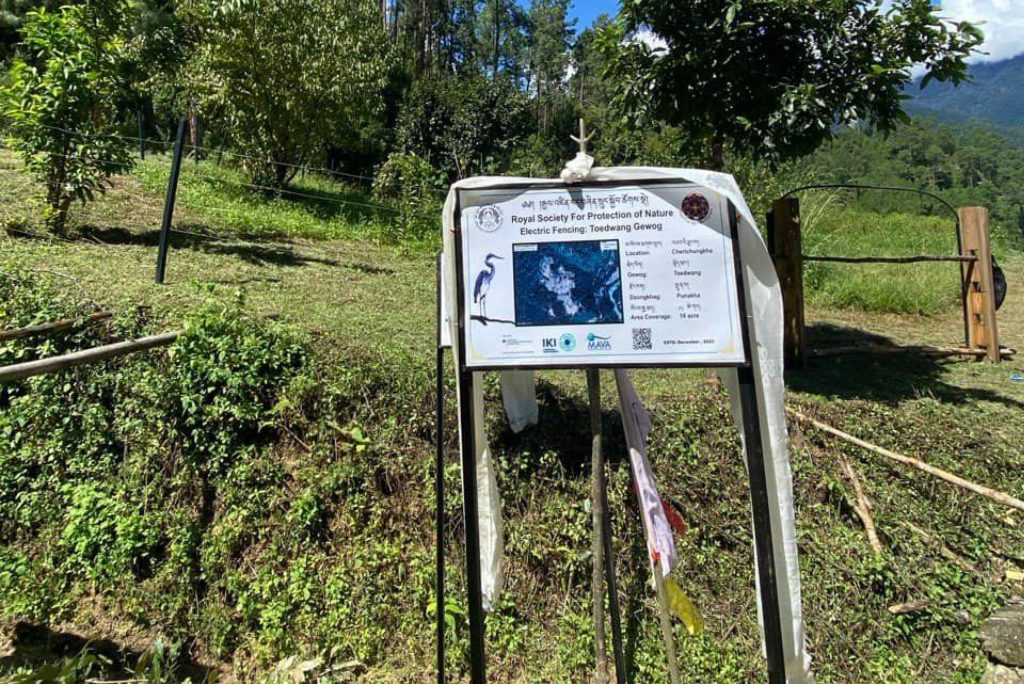
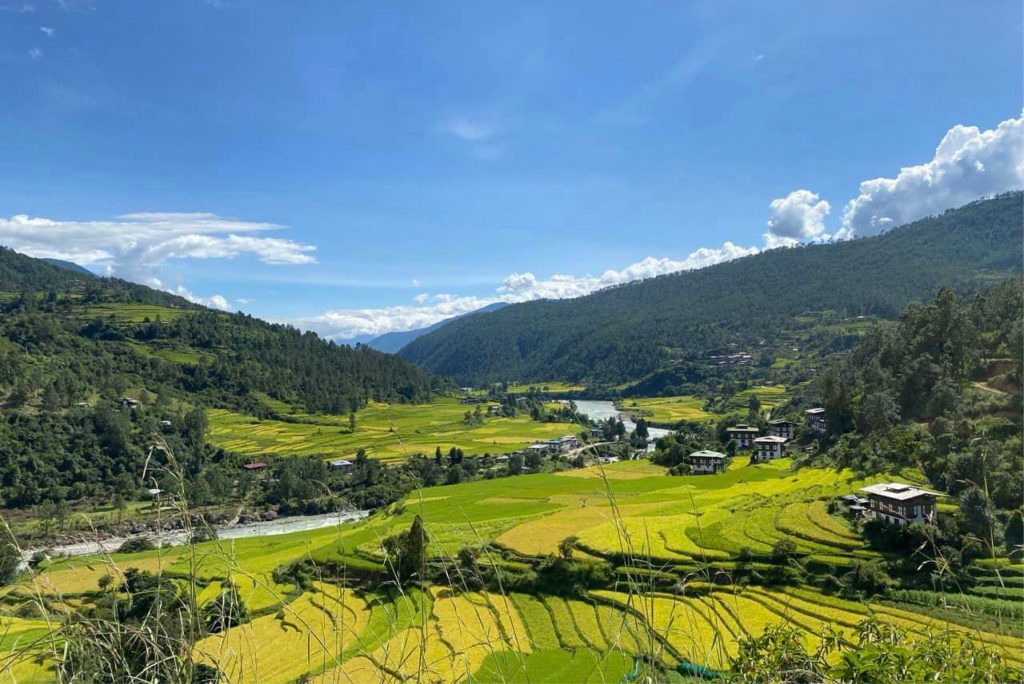
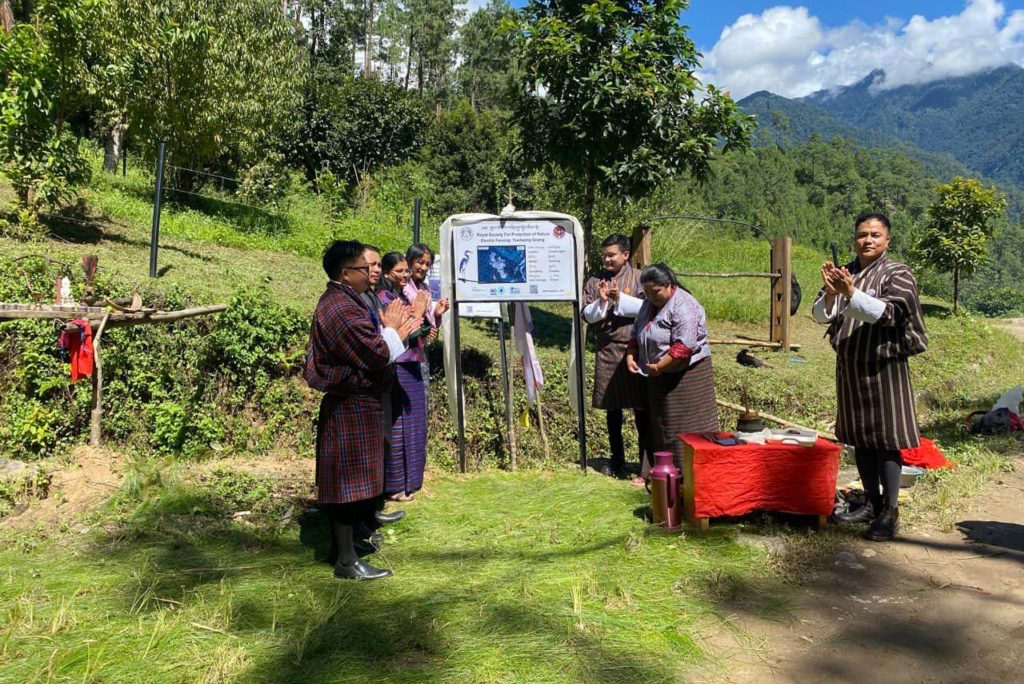
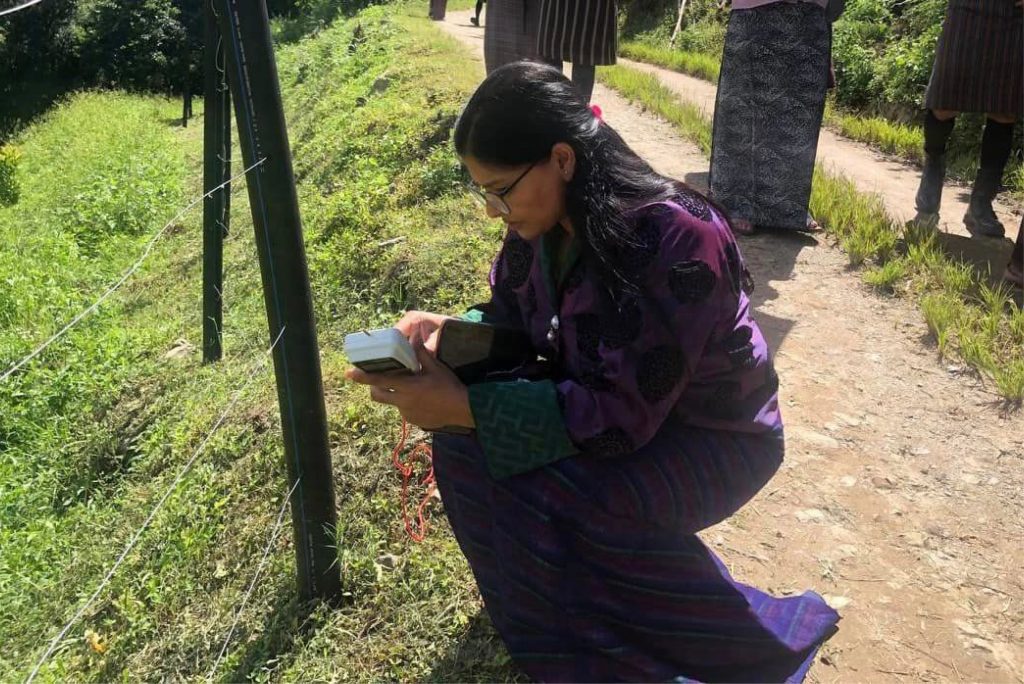
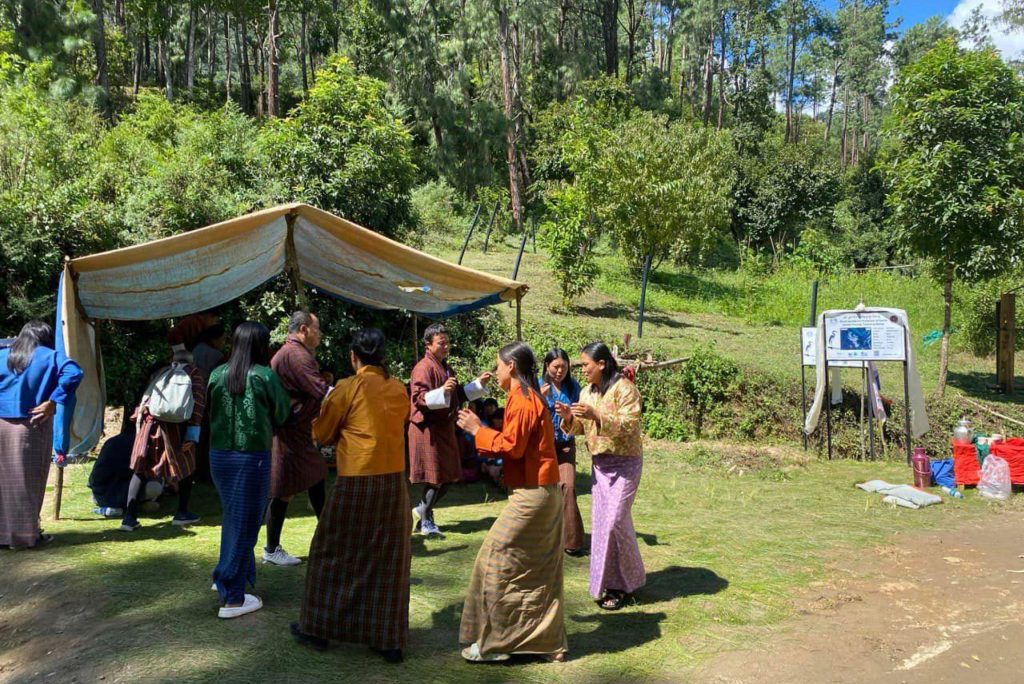
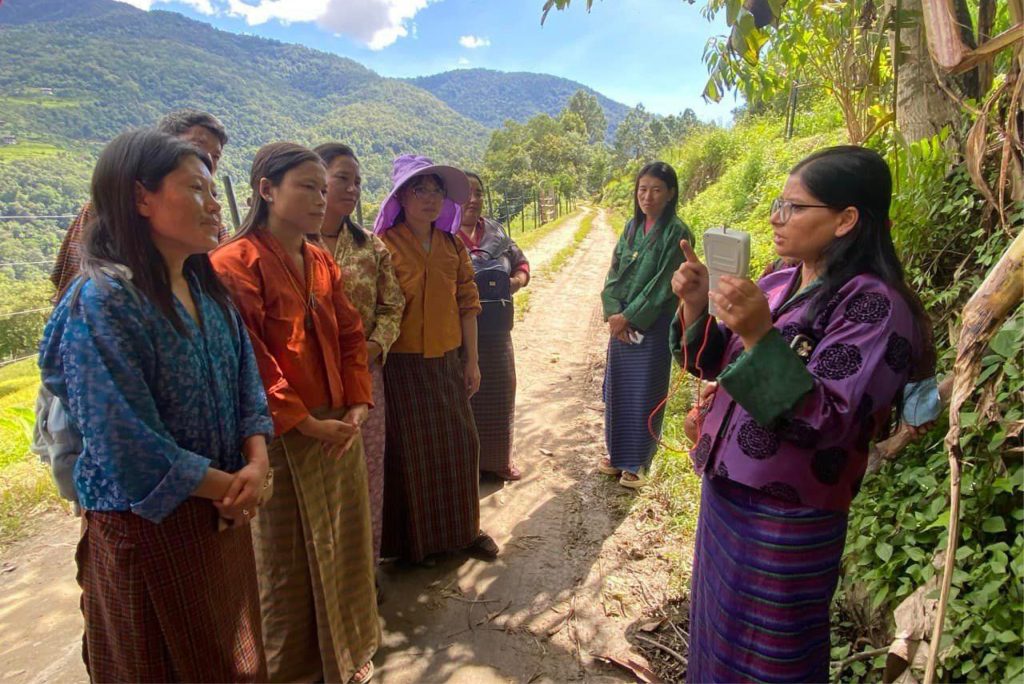
Copyright © 2025 RSPN All Rights Reserved